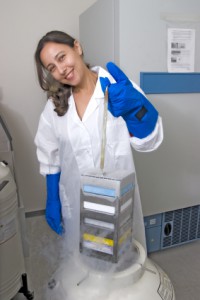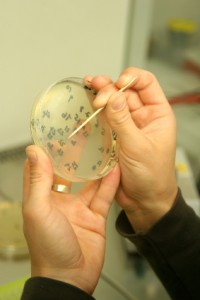
Though my work is primarily in the area of biotechnology, my doctoral degree is in education. Over my next few posts, I thought that I would share some of the findings that came out of research I conducted for my dissertation. It’s been over two years since graduation and much of this is still not published, though on my honor it’s in the works…I focused my study on understanding knowledge transfer at the doctoral level. I was able to complete this work due to the generosity of many doctoral students, recent graduates and mentors across the country. This research was not funded in any way, but I believe it is of great importance given the socio-political context we are all functioning in as learners and professionals. Also, many studies that are similar to the one I did are funded, with a great deal of money I might add. So, without further ado, let me start by introducing the concept of knowledge transfer and why developing knowledge transfer skills are important.
“Knowledge transfer” is a concept grounded in K-12 education and in a general sense refers to an individual’s ability to use knowledge gained in one context in another (similar or dissimilar) context.
For doctoral students, this definition must be broadened in two ways; first, it must be defined as a combination of the development and use of knowledge, skills and attitudes related mainly to processes and influences. This definition includes two-way communication, inquiry (as students seek to develop expertise), motivations and reflection upon student development (both self-reflection and reflection by mentors). Secondly, it must be defined an indicator of outcomes. How do students develop and apply their knowledge, skills and attitudes? Do they think critically, collaborate, become self-directed, and engage in discovery and develop career goals? Despite lack of studies of knowledge transfer in higher education, the idea of transfer could not be more relevant in emerging scientific fields such as molecular bioscience.
Career options for graduates continue to broaden into non-academic areas even as doctoral research projects become increasingly narrow and focused. Nerad and colleagues (2008) found in their longitudinal survey studies of doctoral students post-graduation that students need to learn how to recognize and articulate the transferability of their “PhD completion skills” – the scholarly expertise that they have built throughout their doctoral program, to subsequent careers. It’s no secret that the number of faculty at US colleges and universities continues to increase, but the number of tenure-track positions has not. Further, changes to the wider socio-political and economic contexts shape where doctoral graduates will have opportunities. The most recent data generated by the Survey of Earned Doctorates shows that academic job commitments among new PhDs overall has decreased to about 50% in 2000, compared to 67% in the early 1970s. The percentage of PhDs going into industry more than doubled during that same time frame, from 12% in the 1970s to 27% in the late 1990s. In the science and engineering fields, this trend is exaggerated; only 41% of students in science and engineering had academic work commitments from 1995 to 1999 compared to 58% in 1970-74 (Thurgood, Golladay and Hill, 2006). Recent published statistics of all science and engineering doctorates report that this number has since stayed consistent at 41% (NSF, Survey of Doctorate Recipients: 2010).

Cutting to the heart of the matter, I am suggesting that instead of separating PhD completion skills from professional skills, we see that development in both areas is inherent for developing knowledge transfer skills. Knowledge transfer skills, in turn, allow students to apply knowledge to a wide variety of career options and engage in collaboration, critical thinking and effective communication.
The keystones to experiences that foster knowledge transfer for students involve 1) explicit articulation of expectations and 2) a balance of support and challenge from mentors. These keystones contribute to the development of students’ confidence in his or her transformation from novice to expert. The expertise developed by students is a result of their cumulative experiences, and a broadened experience leads to greater expertise.
In closing, consider this: “The career of the expert is one of progressively advancing on the problems constituting a field of work, whereas the career of the non-expert is one of gradually constricting the field of work so that it more closely conforms to the routines the non-expert is prepared to execute” (Bereiter & Scardamalia, 1993, p. 11).
In July, I will introduce the model for aspects of doctoral programs that influence the development of knowledge transfer skills. Stay tuned!
References
Bereiter, C. and Scardamalia, M. (1993). Surpassing Ourselves: An Inquiry into the Nature and Implications of Expertise. Chicago: Open Court Publishing.
Nerad, M. and Heggelund, M. (2008).Toward a Global PhD? Forces and Forms in Doctoral Education Worldwide. Seattle, WA: University of Washington Press.
National Science Foundation, Division of Science Resources Statistics. 2010. Doctorate
Recipients from U.S. Universities: 2009. Special Report NSF 11-306. Arlington,VA . Available at http://www.nsf.gov/statistics/nsf11306/.
Thurgood, L., Golladay, M.J. and Hill, S.T. (2006). National Science Foundation, Division of Science Resources Statistics. U.S. Doctorates in the 20th Century, NSF 06-319: Arlington, VA.
